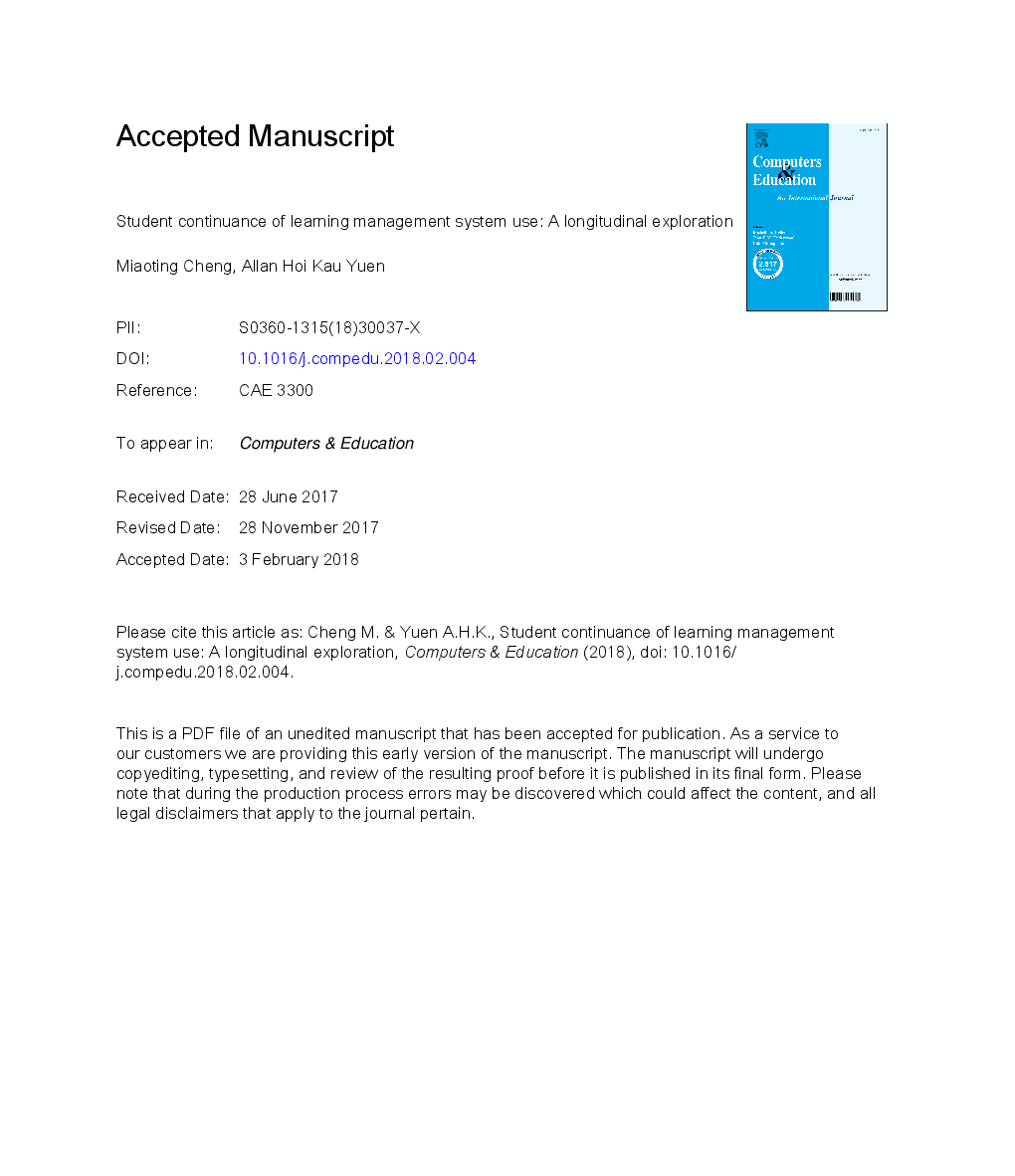ترجمه فارسی عنوان مقاله
ادامه تحصیلات دانشجویی از سیستم مدیریت یادگیری استفاده: اکتشاف طولی
عنوان انگلیسی
Student continuance of learning management system use: A longitudinal exploration
| کد مقاله | سال انتشار | تعداد صفحات مقاله انگلیسی |
|---|---|---|
| 100501 | 2018 | 27 صفحه PDF |
منبع

Publisher : Elsevier - Science Direct (الزویر - ساینس دایرکت)
Journal : Computers & Education, Volume 120, May 2018, Pages 241-253
ترجمه کلمات کلیدی
یادگیری الکترونیکی، مدیریت سیستم مدیریت ادامه، آموزش متوسطه مدل پذیرش فناوری، انتظار تایید مدل،
کلمات کلیدی انگلیسی
E-learning; Learning management systems continuance; Secondary education; Technology acceptance model; Expectation-confirmation model;

